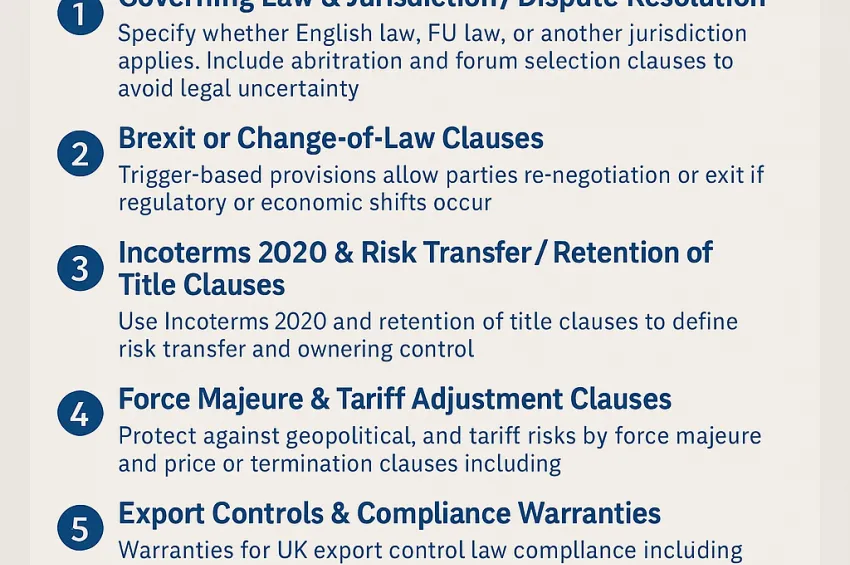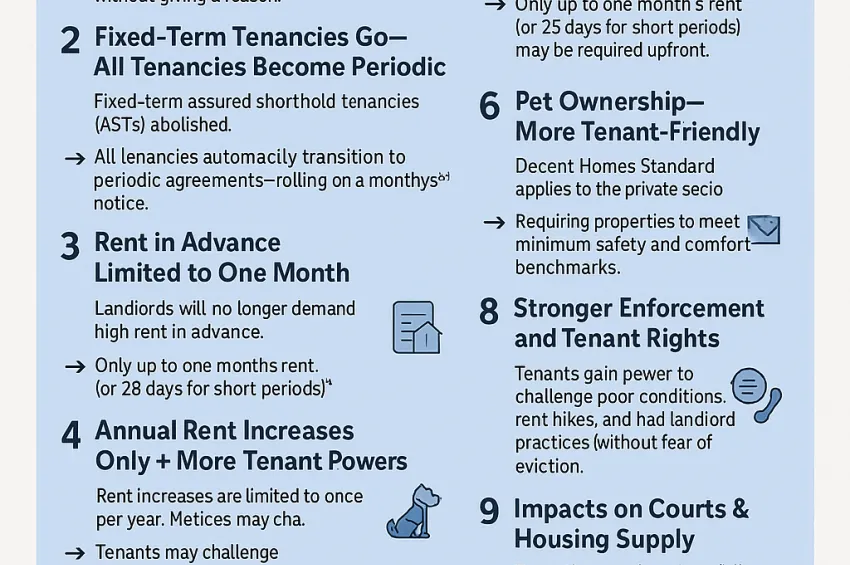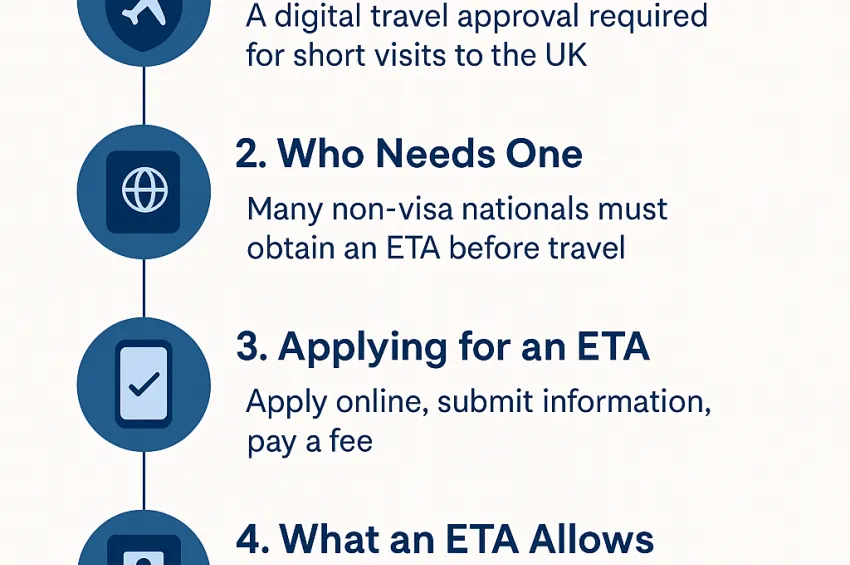
Since the UK’s exit from the EU, businesses face new legal and contractual risks when trading internationally. To protect your operations and streamline cross-border transactions, here are the must-have clauses you should incorporate into your contracts.
1. Governing Law & Jurisdiction / Dispute Resolution
-
Specify clearly whether English law, EU law, or another jurisdiction applies.
-
Include dispute resolution mechanisms, such as arbitration—particularly outside the EU system—to avoid legal uncertainty.
-
Consider forum selection clauses: name the court or arbitral seat and link to a governing law clause.
2. Brexit or Change-of-Law Clauses
-
Trigger-based provisions (also known as “Brexit clauses”) allow parties to renegotiate or exit if key regulatory or economic shifts occur—such as tariff changes or customs delays.
3. Incoterms 2020 & Risk Transfer – Title Retention Clauses
-
Use Incoterms 2020 to define when risk and cost pass between buyer and seller (e.g., FOB, CIF, DPU).
-
Incorporate Retention of Title (ROT) clauses, enabling sellers to retain ownership until payment—especially crucial in insolvency scenarios.
4. Force Majeure & Tariff Adjustment Clauses
-
Include force majeure clauses to protect against unforeseen geopolitical disruptions—such as regulatory changes or closed borders.
-
Add price adjustment or termination clauses to handle sudden tariffs (as seen with U.S. import duties), allowing flexibility to renegotiate, pass on costs, or exit the contract.
5. Export Controls & Compliance Warranties
-
Include warranties confirming compliance with UK export control laws (notably for dual-use goods and regulations specific to Northern Ireland).
-
Require counterparties to maintain licenses (e.g., SIEL, OGEL) and support audits.
6. Trade Agreements & Tariff Clauses
-
Reference the UK–EU Trade and Cooperation Agreement (TCA) and any applicable FTAs (e.g., CPTPP) to assess existing tariff-free trade or preferential status.
-
Watch out for Most Favoured Nation (MFN) clauses in EU agreements that may impact concessions granted to the UK in the future.
Why These Clauses Matter
Mitigate legal and operational risk: By providing clear jurisdiction, price, and delivery terms, you reduce uncertainty and financial exposure.
Manage cost volatility: With tariff and force majeure protections, your contracts remain resilient against economic or regulatory shocks.
Protect your assets: Title retention and compliance clauses safeguard against insolvency or sanction risks.
Future-proof your agreements: Embedding Brexit and trade-triggered clauses ensures your contracts stay relevant amid evolving global trade dynamics.
Sample Contract Clause Summary
| Clause Type | Purpose & Benefit |
|---|---|
| Governing Law & Jurisdiction | Ensures disputes are handled predictably under chosen legal systems |
| Brexit / Change Clauses | Allow renegotiation or exit when regulated circumstances shift |
| Incoterms & ROT | Clarifies risk transfer and protects ownership until payment |
| Force Majeure / Tariff Terms | Shields against political disruption and cost hikes from duties |
| Export Control Warranties | Ensures legal compliance with UK/EU export laws |
| References to Trade Agreements | Keeps obligations aligned with evolving free trade frameworks |
Summary: Post-Brexit cross-border contracts must be robust, adaptable, and transparent. By integrating the above clauses, you gain clarity, agility, and legal shielding.
Need help drafting or reviewing your international trade contracts under post-Brexit realities? I’m here to provide tailored legal support.















